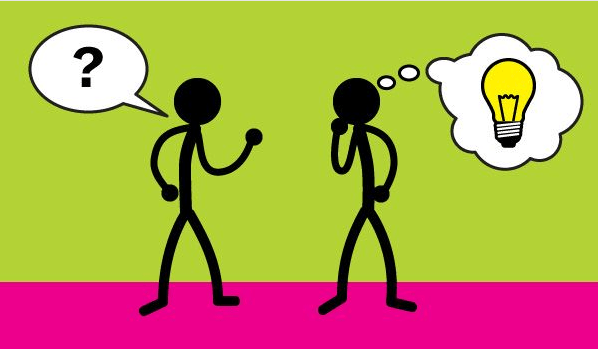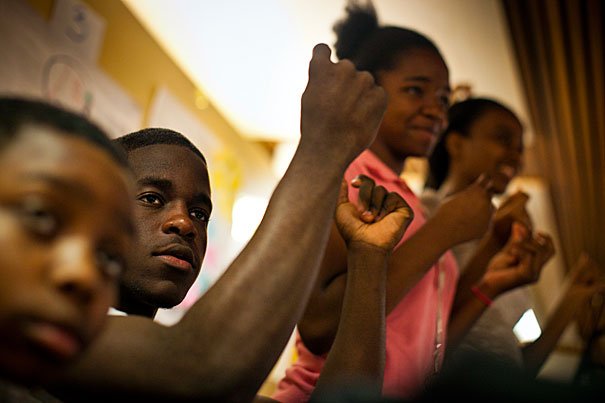Dear passive allies, Here’s one way you can be helpful
 I am an artist, author, and researcher. I infuse the arts, storytelling and critical thinking into professional development and community building across race, class, and gender. Facilitating and encouraging thought-provoking and difficult conversations is my specialty. It’s my passion. For me, community building is a way to develop allies.
I am an artist, author, and researcher. I infuse the arts, storytelling and critical thinking into professional development and community building across race, class, and gender. Facilitating and encouraging thought-provoking and difficult conversations is my specialty. It’s my passion. For me, community building is a way to develop allies.
 To make this happen I work to create a “brave space” where you can ask the tough questions, admit faults and celebrate successes. I’m going to share a brave conversation I wish I had w
hile recently attending a conference where having allies would have been helpful… even passive ones. So, to all my social justice-seeking colleagues unsure of how to manage your timidity in the presence of your peers, I hope you can find some courage in this open letter:
To make this happen I work to create a “brave space” where you can ask the tough questions, admit faults and celebrate successes. I’m going to share a brave conversation I wish I had w
hile recently attending a conference where having allies would have been helpful… even passive ones. So, to all my social justice-seeking colleagues unsure of how to manage your timidity in the presence of your peers, I hope you can find some courage in this open letter:
Dear White Colleagues,
You recently attended a conference with me where a professor gave a keynote address about a theater program that he and his undergraduate students conducted in a female prison. He shared how teaching the inmates Shakespeare could help them be “more honest” and gain other soft skills that would supposedly prepare them for life outside of prison.

I joined teachers and actors to work with the Royal Shakespeare Company in Statford-upon-Avon, England to learn how to use theater techniques to teach reading comprehension.
A program that explores literature and society can be very empowering. As an educator, I have used similar theater-based techniques to explore leadership, vulnerability, and family relationships. But that’s not what I took from his presentation.
I didn’t see any collaboration between the inmates and the professor. It wasn’t clear whether the women wanted the program or that they shared his goals. Why Shakespeare? Why not a program like theater artist Rhodessa Jones’ The Medea Project where incarcerated women write plays about their stories and perform them? I sensed bias when he expressed fears of getting “shanked.”
It was clear neither the professor or the students thought about why and how they are engaging that population. They had no clue about their implicit biases.
I looked at the room of over one hundred participants. I was one of five Black people attending the conference and one of two Black women.
I decided I needed to say something. I posed several questions to him during the Q&A open forum about the hidden assumptions he holds. I questioned why he was using service-learning as a means to make him and his students feel better by helping the often forgotten members of society, but not critically thinking about systems of oppression.
After I spoke, the other Black woman suggested some resources he could use. Everyone else was silent. You were silent. I felt alone, but only momentarily.
When the event was over, more than a dozen of you thanked me for addressing his program that limited the ability for the prisoners to be fully humanized for what is presumed to be their own good. It sparked conversations about productive community engagement.
You thanked me for having the courage to say what you were thinking. I appreciated those words, but I also saw a problem.
I shouldn’t have been the only one speaking up.
The professor needed to know it wasn’t just Black women, who found his program problematic.
He needed to know that many of his white peers agreed with me. There needed to be an alliance of voices. I needed you to affirm my statement so he could hear it. You didn’t have to stick your neck out, but I needed brave backchannelling.
Backchanneling is a linguistic term that describes when a listener offers verbal agreement such as “uh-huh” or “wow” or non-verbal support such as head nods, finger snaps, or applause. Brave backchanneling goes a step further, using both verbal and nonverbal communication to stand in solidarity with the speaker in a non-confrontational manner.
In the vein of “call-and-response,” a tradition often seen in Black Baptist communities and poetry circles, brave backchanneling is a temporary alliance between strangers or colleagues. It’s a middle ground between disruptive support and complicit silence.
There are times when a higher level of confrontation is required such as forming coalitions for a cause or interrupting harmful discussions.
In those cases, brave backchanneling is ineffective. But in staff meetings when a colleague questions the fairness of an office policy, when someone challenges a friend for telling a racist or sexist joke, or you are attending a conference where problematic statements are made, brave backchanneling can be an effective momentary display of solidarity.
This election has brought to surface another iteration of xenophobic sentiments post-Black American progress: Jim Crow after Reconstruction, Southern Strategy and Reaganomics after the Civil Rights Act, and a racist, homophobic, Islamophobic, misogynist Trump administration after our first Black president.
Post-Trump’s election, many people find themselves in conversations they have never entertained before. Many of my liberal white colleagues have expressed anger and sadness over the president-elect and discomfort with discriminatory remarks made by co-workers and family members.
But they sit in silence, even when someone else does the confronting. I ask, “Why didn’t you support the person who challenged the disparaging comments since you didn’t feel comfortable confronting the person yourself?” They never know how to respond.
Had I had more brave backchanneling support at the conference, it would have made it more difficult for the speaker to dismiss my claim as a minority opinion or think that I have an agenda.
Let’s be clear, I’m not interested in spectator solidarity.
You can say you’re an ally, but if there’s no action connected to our assumed alliance, your safety pin looks too much like an unproductive symbol to satiate feelings of social justice ineptness. It is a silent response to continued American terrorism. Since the election, friends, colleagues and strangers have been called racial slurs, pushed down stairs, and sat in terror as they watched people in white hoods drive through their neighborhoods.
It may be difficult to support a stranger or colleague especially when the speaker is a friend or a person in a position of power. But if we seek a more equitable world where people are held accountable and constructive criticism works to make the lives of the marginalized better, bravery is required.
While in that meeting, conference, or at the family dinner table, you hear something offensive to another community, show your solidarity with the community in their absence, especially if someone else has spoken in their defense. Speaking out is difficult. You may be afraid, but it’s bigger than you.
In love and solidarity…




















